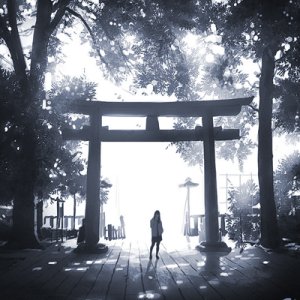Deze recentie kan spoilers bevatten
D.P. (Season One), directed by Han Jun-hee and based on the webtoon D.P: Dog Days by Kim Bo-tong, is a standout K-drama that explores the tough world of South Korea's mandatory military service. The series follows Private An Joon-Ho (Jung Hae-In), a quiet and observant soldier recruited into the D.P. team tasked with capturing military deserters. With a keen eye for detail and an empathetic heart, Joon-Ho navigates the grim realities of military life, mixed with moments of normalcy and camaraderie. The show presents a raw and unflinching look at the toxic masculinity and systemic abuse in the military, making it a powerful and impactful drama.
Mandatory military service is a big part of South Korean society, with all able-bodied men between the ages of 18 and 28 required to serve for about 18 to 21 months. D.P. stands out for its fearless exploration of toxic masculinity and systemic abuse within the military, issues that have long troubled the South Korean armed forces. The series does not shy away from showing the brutal hazing, bullying, and dehumanizing practices that are too common in military life.
"Just because we don’t see it with our own eyes (or have it happen to us) does not mean these incidents are not real."
The show's creator, Kim Bo-tang, uses the military to reflect broader societal issues. The fear and violence in the barracks mirror the toxic hierarchies and power dynamics that exist in many areas of life. Joon-Ho's empathy and moral conflict serve as a counterpoint to the pervasive brutality, highlighting the human cost of such a system. The harsh conditions and abusive environment in the military have led to significant mental health issues among conscripts, with anxiety, depression, and PTSD being common among those who have faced severe bullying and hazing.
Han Jun-hee's direction is compelling, capturing the stark contrast between the rigid, oppressive environment of the military and the fleeting moments of freedom outside the base. The cinematography effectively shows the claustrophobic and tense atmosphere of the barracks, while the scenes outside offer a brief respite, highlighting the characters' longing for normalcy.
"I should at least do something."
While D.P. excels in its thematic exploration and character dynamics, it does suffer from some issues. The main characters, particularly Joon-Ho, Park Beom-Goo, and Han Ho-Yeol, could be developed more. Their backstories and motivations are hinted at but not fully explored, leaving some aspects of their characters unclear. Additionally, the series' climax veers into melodramatic territory, which can feel out of place compared to the grounded nature of the earlier episodes. The series features many comedic elements to add some levity to the serious subject matter, but this often comes at the cost of spending time on more meaningful points that could add more weight to the series.
Another significant issue is the procedural format of the series, which is its biggest downfall. Many elements of the first season don't go anywhere, are underdeveloped, or are completely forgotten about and unresolved. The procedural structure makes many scenes within the first four episodes feel meaningless. This format detracts from the overall impact and coherence of the series, making it feel disjointed at times.
Despite these shortcomings, D.P. is a compelling and emotionally resonant series that sheds light on the harsh realities of mandatory military service. The depiction of bullying and abuse resonated with many veterans, making it a domestic phenomenon.
D.P. is a powerful and thought-provoking series that deserves recognition for its bold storytelling and unflinching portrayal of systemic abuse. It humanizes its characters while critiquing the toxic structures they navigate, offering a poignant commentary on fear, masculinity, and power. D.P. stands as a significant work in the K-drama landscape, deserving of a wider audience and deeper appreciation. The series' commitment to highlighting important issues within the military, such as the real-world phenomena of desertion and the struggles soldiers face, makes it not only a compelling drama but also a crucial conversation starter about the urgent need for reform.
Mandatory military service is a big part of South Korean society, with all able-bodied men between the ages of 18 and 28 required to serve for about 18 to 21 months. D.P. stands out for its fearless exploration of toxic masculinity and systemic abuse within the military, issues that have long troubled the South Korean armed forces. The series does not shy away from showing the brutal hazing, bullying, and dehumanizing practices that are too common in military life.
"Just because we don’t see it with our own eyes (or have it happen to us) does not mean these incidents are not real."
The show's creator, Kim Bo-tang, uses the military to reflect broader societal issues. The fear and violence in the barracks mirror the toxic hierarchies and power dynamics that exist in many areas of life. Joon-Ho's empathy and moral conflict serve as a counterpoint to the pervasive brutality, highlighting the human cost of such a system. The harsh conditions and abusive environment in the military have led to significant mental health issues among conscripts, with anxiety, depression, and PTSD being common among those who have faced severe bullying and hazing.
Han Jun-hee's direction is compelling, capturing the stark contrast between the rigid, oppressive environment of the military and the fleeting moments of freedom outside the base. The cinematography effectively shows the claustrophobic and tense atmosphere of the barracks, while the scenes outside offer a brief respite, highlighting the characters' longing for normalcy.
"I should at least do something."
While D.P. excels in its thematic exploration and character dynamics, it does suffer from some issues. The main characters, particularly Joon-Ho, Park Beom-Goo, and Han Ho-Yeol, could be developed more. Their backstories and motivations are hinted at but not fully explored, leaving some aspects of their characters unclear. Additionally, the series' climax veers into melodramatic territory, which can feel out of place compared to the grounded nature of the earlier episodes. The series features many comedic elements to add some levity to the serious subject matter, but this often comes at the cost of spending time on more meaningful points that could add more weight to the series.
Another significant issue is the procedural format of the series, which is its biggest downfall. Many elements of the first season don't go anywhere, are underdeveloped, or are completely forgotten about and unresolved. The procedural structure makes many scenes within the first four episodes feel meaningless. This format detracts from the overall impact and coherence of the series, making it feel disjointed at times.
Despite these shortcomings, D.P. is a compelling and emotionally resonant series that sheds light on the harsh realities of mandatory military service. The depiction of bullying and abuse resonated with many veterans, making it a domestic phenomenon.
D.P. is a powerful and thought-provoking series that deserves recognition for its bold storytelling and unflinching portrayal of systemic abuse. It humanizes its characters while critiquing the toxic structures they navigate, offering a poignant commentary on fear, masculinity, and power. D.P. stands as a significant work in the K-drama landscape, deserving of a wider audience and deeper appreciation. The series' commitment to highlighting important issues within the military, such as the real-world phenomena of desertion and the struggles soldiers face, makes it not only a compelling drama but also a crucial conversation starter about the urgent need for reform.
Vond je deze recentie nuttig?










